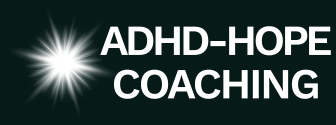About ADHD
What is ADHD?
ADHD stands for Attention Deficit Hyperactivity Disorder. ADHD is a common developmental neurological condition affecting children and adults. ADHD impacts on the brain's executive functioning resulting in challenges in attention, impulse control and hyperactivity.
This may present as difficulty maintaining focus, being organised, acting without thinking and experiencing restlessness. With support a person with ADHD can utilise their strengths to minimise the impacts of these challenges.
Those impacted by ADHD often report challenges such as:
- Feeling unable to manage what needs to be done to be successful at work, home or in their business.
- Experiencing stress due to fear of losing their job, their business or their relationships.
- Feeling overwhelmed by paperwork and emails and being unable to keep things organised.
- Losing important documents such as identity documents.
- Forgetting to pay parking, traffic and public transport fines which get bigger.
- Struggling to budget and respond to legal and financial matters. Keeping records and completing tax returns can feel like overload and impossible.
- Wasting time online searching for things or gaming to the neglect of all their other important responsibilities resulting in a sense of shame and hopelessness.
- Having trouble sleeping.
- Often being too distracted to remember to eat and drink resulting in poor health, lowered mood, reduced energy and motivation.
- Strained relationships and low self-esteem, often because the person with ADHD and/or their partner or parent do not understand how ADHD impacts on day-to-day functioning so expectations are unrealistic and create resentment
- Struggling to maintain organisation at home and not having people visit due to shame.
We wouldn’t expect someone to read without glasses if they needed glasses. We mustn’t expect those with ADHD to perform in the same way as their non-ADHD affected peers. Having ADHD is a different and way of being in the world. Once your unique challenges and unique strengths are understood, your expectations of yourself and of those around you, can be more realistic and supportive. Your goals can be more in line with your strengths and skills.
So, it is easy to see how someone with these challenges can feel isolated, misunderstood, inadequate and hopeless about life and themselves. Goals seem unreachable. Faith in themselves damaged. They have heard too many times what they can’t do, what they have done wrong.
Coaching can restore that faith and that hope. With information and support these challenges can not only be minimized but strengths found and new paths of hope created. It’s all about finding where your unique strengths can shine.
Check out this amazing list of people with ADHD that used their unique talents for success:
https://www.mentalup.co/blog/famous-people-and-celebrities-with-adhd
